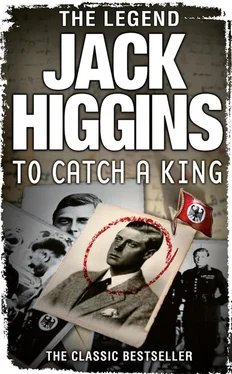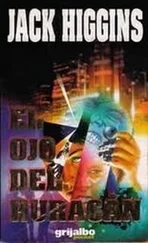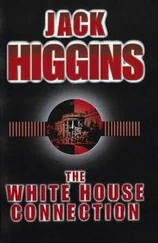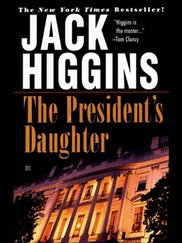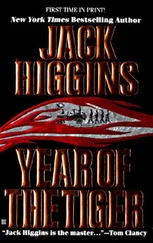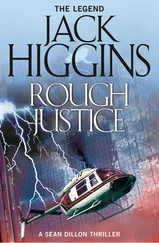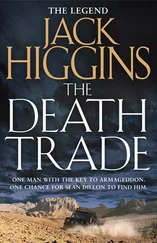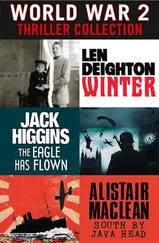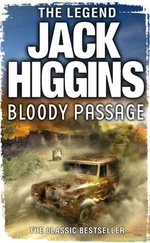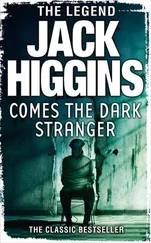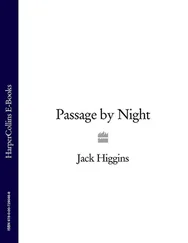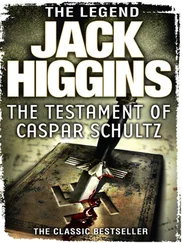She hurried across, filled with desperate hope, but there was no light inside and the glass doors were locked. She rattled them furiously in helpless rage. There was a wharf at the side of the building, another door with a light above it marked Stage . She tried that too, hammering on it with her fists and then Kleiber ran round the corner, a Luger in his left hand.
‘I’ll teach you,’ he said softly. ‘Little Jewish bitch.’
As Sindermann arrived she turned and ran along the wharf into the fog.
Joe Jackson had dark, wavy hair, pale face, hazel-green eyes and a slight, ironic quirk that seemed to permanently lift the corner of his mouth. The weary, detached smile of a man who had found life more corrupt than he had hoped.
He always closed Mondays. For one thing, it gave everyone a night off and, for another, there was little trade to be had at the beginning of the week. It gave him a chance at the books in peace and quiet, which was what he was doing when Hannah first rattled the front door.
A drunk, he thought, looking for another drink, and returned to his accounts. A moment later, he heard her at the side door. He was aware of a murmur of voices and then a sharp cry. He opened the right hand drawer of the desk and took out a Browning automatic, got to his feet and moved out of the office quickly.
He was wearing a navy-blue sweater, dark slacks. A small man, no more than five feet five or six, with good shoulders.
He unlocked the stage door and stood, listening. There was a choked cry from further along the wharf. He went forward, taking his time, silent on rope-soled sandals.
There was a lamp on a pole at the end of the wharf. In its light, he saw Hannah Winter on her back. Sindermann crouched over her body. Kleiber stood above them, still holding the Luger.
‘And now, Miss Winter,’ he said in English. ‘A lesson in manners.’
‘I don’t think so,’ Jackson called softly.
He shot Kleiber in the left forearm, driving him back against the rail, the Luger jumping into the dark waters below.
Kleiber made no sound – simply stood there, gripping his arm, waiting for what was to come.
Hannah Winter, still pinned beneath Sinder-mann’s weight, gazed up at Jackson blankly. He tapped the German on the back of the head with the barrel of the Browning.
Sindermann stood up and raised his hands. There was no fear on his face, simply a sullen rage. Jackson helped the girl to her feet. For the briefest of moments his attention was diverted as she sagged against him. Sindermann charged, head down.
Jackson swung the girl to one side and stuck out a foot. Sindermann tripped and continued head first over the rail. They could hear him floundering about in the waters below.
Jackson had an arm about her again. ‘You all right?’
‘I am now,’ she said.
He gestured with the Browning at Kleiber who stood waiting, blood oozing between his fingers. ‘What about this one?’
‘Let him go.’
‘No police?’
‘It’s not a police matter,’ she said wearily.
Jackson nodded to Kleiber. ‘You heard the lady.’
The German turned and walked away rapidly. She started to keel over. He pushed the Browning in his belt at the small of his back and picked her up in both arms.
‘Okay, angel, let’s get you inside.’
She stood under the hot shower for twenty minutes before towelling herself dry and putting on the robe he’d given her. The apartment was on the third floor at the rear of the club and overlooked the river. It was neat and functional and sparingly furnished, with little evidence of any belongings of real personal worth. The present resting place of a man who had kept on the move for most of his life.
The sliding windows stood open and she found him standing on the broad wooden verandah, a drink in one hand, looking out over the river. A foghorn sounded somewhere in the distance as a ship moved out to sea.
She shivered. ‘The loneliest sound in the world.’
‘Trains,’ he said gravely. ‘According to Thomas Wolfe. But let me get you a cognac. You look as if you could do with it.’
His voice was good Boston American. ‘Where are you from?’ she asked.
‘Cape Cod. Fishing village called Wilton. A long, long time ago.’ He handed her the cognac. ‘And you?’
‘New York, although it’s a matter of dispute in some quarters,’ she said and sipped a little of the cognac.
He lit a cigarette. ‘Those friends of yours out there? You said it wasn’t police business.’
‘True,’ she said. ‘You see, they are police. A variety peculiar to the Third Reich, known as the Gestapo.’
He was no longer smiling now. He closed the window and turned to face her.
‘You’re Joe Jackson, aren’t you?’
‘That’s right, but we’ve never met.’
‘No,’ she said. ‘But I know all about you. My name is Hannah Winter. I’m a singer. Born in Berlin, but my parents took me to America when I was two years old. I returned to Berlin to sing at my uncle Max’s club two months ago. You know a piano player called Connie Jones?’
Jackson smiled. ‘I certainly do. He’s in Madrid at the Flamenco with his trio right now. Due to appear here next week.’
‘A fortnight ago, he was backing me at my uncle’s place in Berlin. The Garden Room. He was the one who told me about the great Joe Jackson who runs the best American bar in Lisbon. Who fought with the International Brigade in Spain and flew fighters against the Nazi Condor Legion.’
Jackson said, ‘All right. I’ll buy it.’
She said, ‘Have you ever heard of a man called Dr Ricardo de Espirito Santo é Silva?’
‘Portuguese banker. Has a villa at Estoril.’
‘Would you happen to know who his house guests are at the moment?’
‘Common knowledge. The Duke and Duchess of Windsor.’
‘But not for much longer,’ she said. ‘Not if the Nazis have anything to do with it.’
She started to shake.
‘Okay,’ Joe Jackson held her arms for a moment, then drew her down on the couch beside him in front of the fire.
‘Now calm down. Just take your time and tell me about it.’
It began, if it began anywhere at all, with a man called Erich von Manstein who at the beginning of 1940 was chief of staff to General Gerd von Rundstedt.
Von Manstein, who was to become the most brilliant commander in the field that the German army produced during the Second World War, was a superb tactician who constantly challenged the views of his superiors, particularly their plans to invade France and the Low Countries.
Faced with demotion, his career threatened, chance took him to a dinner party given by Adolf Hitler on 17 February 1940. At that meeting he took the opportunity of outlining to the Führer his own alternative plan, an audacious drive to the Channel by Panzers through the Ardennes, aimed at separating the British and French armies.
Hitler became so obsessed with the idea that, in time, he came to believe that it was his own. On 10 May, it was put into action with incredible effect. Within a matter of days, the Allied armies were in a headlong retreat.
By 2 June, thanks to Hitler’s decision to halt his Panzers on the Aa Canal, most of the British Expeditionary Force managed to escape from the beaches of Dunkirk. On the afternoon of the 22nd, the French signed an armistice document in the forest of Compiègne in the old wooden dining car in which Marshal Foch had dictated terms to the Germans in November 1918.
Early the following morning, Hitler accompanied by Keitel and a few hand-picked companions, landed at the Le Bourget airport and was driven into Paris. The most devastating campaign in modern warfare was over.
In the chaos that was the rest of France, particularly in the south, the roads were crowded with refugees pushing desperately for the Pyrenees and the Spanish border, many of them British citizens who had lived on the Riviera for years.
Читать дальше
